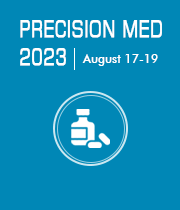Cost-benefit issues, and ethics in precision medicine
Precision medicine (PM) is a type of medicine that tries to enhance patient outcomes by stratifying or personalizing diagnosis and treatment decisions. Over the last few decades, a progressive trend toward patient-centered healthcare has made it possible to use tailored diagnostic and treatment approaches. Precision medicine (PM) delivers stratified patient subpopulations with known outcome margins with timely and cost-effective medical solutions. Genetic profiling, including the discovery of prognostic biomarkers, is now the most common form of PM intervention. These can identify people who are at risk for a particular disease or a severe form of a disease, allowing for early intervention to reduce disease burden and improve quality of life. Many factors influence the cost-effectiveness of targeted interventions, including the prevalence of a particular gene or allele in a population, the accuracy of a test, and the costs of testing and individualized treatment. As a result, patient outcomes may improve, although PM's cost-effectiveness is still unknown.
- Economic Evaluations
- Pharmaceutical Industry Involvement
- Ethics
- Factors Influencing Cost-Effectiveness

Bernd Blobel
University of Regensburg, Germany
Roy Gary Beran
University of New South Wales, Australia
Matthias Schwab
University of Tubingen, Germany
Thomas Webster
Interstellar Therapeutics, United States
Boris Tankhilevich
Magtera, Inc., United States
Isabella Friis Jorgensen
University of Copenhagen, Denmark


Title : The use of anti seizure medication therapeutic blood level determination to personalise the treatment of epileptic seizures especially in patients attending the accident and emergency department
Roy Gary Beran, University of New South Wales, Australia
Title : Personalized and precision medicine (PPM) can be established as a unique healthcare model through biodesign-driven and inspired biotech, translational applications. This approach aims to ensure human healthcare, wellness, and biosafety.
Sergey Suchkov, Institute for Biotech & Global Health of RosBioTech and A.I. Evdokimov MGMSU, Russian Federation
Title : Monitoring folds localization in ultra-thin transition metal dichalcogenides using optical harmonic generation
Ahmed Raza Khan, Australian National University, Australia
Title : A systematic review of regulatory approaches for Direct- To- Consumers (DTC) genetic testing
Kavitha Palaniappan, Duke-NUS Medical School, Singapore
Title : Regulatory framework of in vitro diagnostic and artificial intelligence for precision medicine
Pei Ting Sarah Chou, Regulatory Affairs Professionals Society, Taiwan
Title : Unraveling cancer stem cell signatures in circulating tumor cells of metastatic colorectal cancer: Investigating ALDH1A1 and the repurposing potential of disulfiram via scRNA-seq
Nurul Syakima Ab Mutalib, Universiti Kebangsaan Malaysia, Malaysia